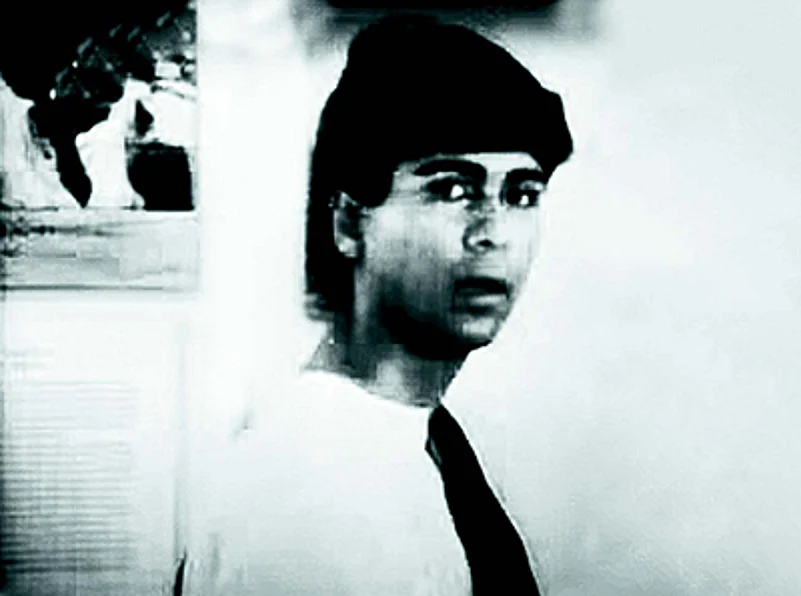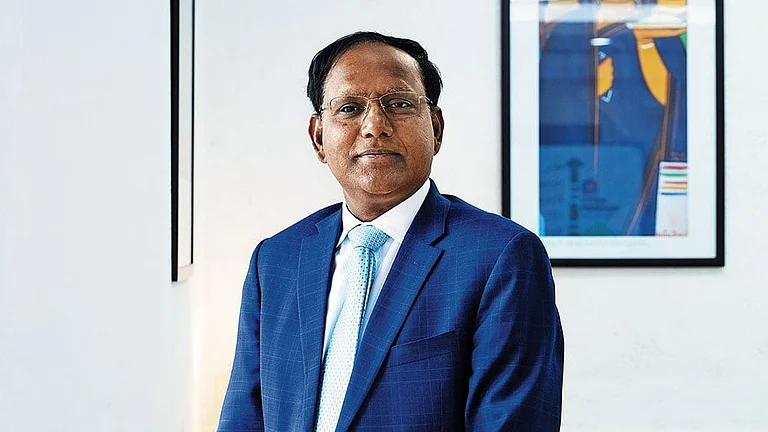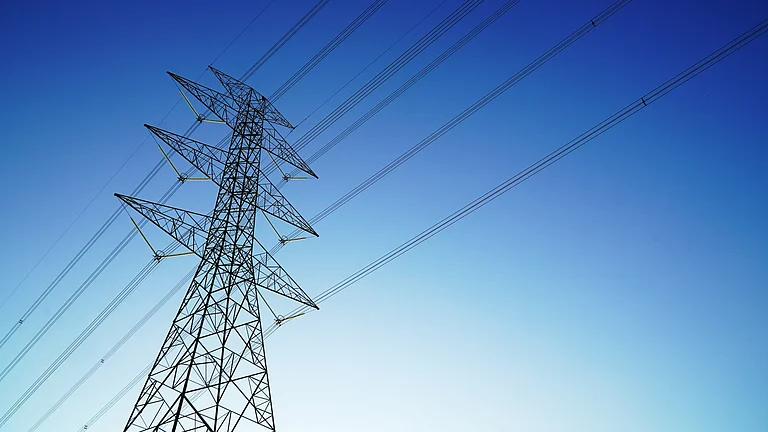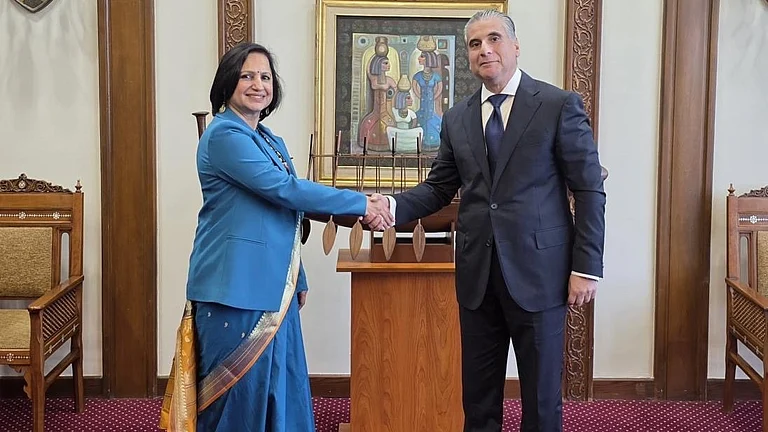I remember growing up right here, in Akurdi. Though both my parents were from Mumbai and grew up there, dad wanted to move here because he didn’t want to be an absentee landlord. It wasn’t easy. Mom used to say it annoyed her when dad brought guests home, unannounced, and she had to send the driver all the way to town, even for a loaf of bread.
It was a simple life. Sanjiv, Sunaina and I, we had a thousand friends to play with from the 200 families that lived in the colony. Everyone from the factory lived here — from the chairman to the watchman. All the kids played together, took walks along the highway that was rarely busy and across a stream where buffaloes bathed. We all went to the same school run by The Society of the Sisters of St. Ursula, who had travelled all the way from Switzerland. They would bathe children before the class began! It is a memory that has stayed with me. A wall lined with taps, with children crouched under them and the sisters bathing them. Not a bad lesson with the virus around us - on how important hygiene is.
We played gilli danda, stole toffees from the bania next door, picked up grass with arrowheads and threw them at each other. Wonderful!
Life was good.
One of the earliest memories that I have of that time is of the days of labour unrest in 1979. A strike was called and there was violence, with angry workers flinging big metal parts inside the factory and damaging the machinery. Dad was advised to call a lockout but he thought it should be the last resort. Once you shut a facility down, reopening it takes long. There is a drawn-out process. So, he tried to avoid a lockout and reach a compromise and sometimes, I was there listening to these conversations.

Then one night, at around 7.30 or 8 pm, Mom, Sanjiv and I were on the balcony and we saw dad’s office burning. Everything else was undisturbed and calm, except for the fire. It was eerie, like watching a small war from your home. The office building was in our line of sight, just 400 metres away. Dad called and told us he was okay, that they had lit a fire and stones were flying through his window, but he had security guards around him. This is not something you associate with scooter making.
But I was conflicted for another reason. Our maid, Hirabai, was like a second mother to us and her son was a worker in the factory. Which side do I take? Who was right? On the one hand, dad was in danger. On the other, what if the police opened fire — which did happen a few days later and two to three employees were killed — and Hirabai’s son died? How do you deal with that?

I remember asking mom, who was standing and watching this violence unfold, expressionless. She replied, “In times like these, no one can really tell you what is right or wrong. Close your eyes and listen to that inner voice, your conscience. You will know what is right and what is wrong.” It was a big life lesson and one that I have passed on to my son.
In a business environment, when you are amidst people from different strata, there is bound to be conflict. Also, when there is conflict, the innocent suffer. The bania in our colony, from whom we used to steal toffees, was loitering during the police firing. He got shot. One of my classmates lost his uncle in the firing... that boy, Vithal Padale, and I were on the same cricket team; he was a fast bowler. It was a difficult situation to face so early in life.
No one in my class blamed me or looked at me differently and eventually, the incident passed. But that experience remained. Whether it was guilt or anxiety or confusion, these are not nice things to experience. Like Maya Angelou once said, “The universe is not made of atoms but stories”. It is the stories that remain.
Life is a game of chance
1987: Our family decided to make a documentary on Jamnalal Bajaj, my great-grandfather who was said to be the fifth son or the adopted son of Mahatma Gandhi. It was titled Kathni Karni Ek Si (as is your talk, so should be your walk) and quite embarrassingly, it is still there on YouTube. The family made a bakra out of me. Uncle and aunt bulldozed me and the director, Bhimsain Khurana, convinced me to play the narrator or sutradhar.
It was shot in Sikar, a two-hour drive from Jaipur, where our great-grandfather was born. That trip itself was memorable – we got lost, ran out of fuel but, in the end, somehow got there. Seeing where we came from for the first time, I was shocked... Ours was a mud house and I had to stoop to enter it. We finished our shoot and were leaving when I saw Subhash, one of our security guards. I knew him well because we used to play soccer with the security guards. I asked what had brought him there. He said he had come home for vacation and his house was right next to ours.

My great-grandfather, who was born to a poor family, had been playing outside in the blazing sun when a sethji named Bachraj Bajaj happened to pass by and see him. Sethji asked his mother whose child it was, and she said, affectionately, ‘Tharo hi hai.’ It was merely said out of politeness and regard, but he asked her if he could then take the child home with him. She was aghast, but Jamnalalji’s father said that a word given had to be kept. Sethji asked how he could reciprocate to which the father said they were not selling the child, but if at all he wanted to, he could build a well for the village as the women had to walk a long distance every day to fetch water.
It struck me — what if Subhash’s great-grandfather had been playing outside that day and not mine? I would have been a security guard at Bajaj Auto and the guard, the chairman. Truly, circumstances are much bigger than us. The whole talk of ‘I have done it. This is mine’ is wrong. Where you are placed in life is just luck. Of course, within that, how you conduct yourself is an important but minor detail. If I had to reason why I am where I am, I could talk of lineage, heritage, father, great-grandfather, Harvard degree, meritocracy and all of that but it would be rubbish. I am here because my great-grandfather was playing marbles in the courtyard one hot afternoon and somebody wealthy happened to pass by. That is how the family came into wealth. It was a reality check. It grounded me.
Mom played a big part, too, in keeping us grounded. Coming from a middle-class highly educated Maharashtrian family with great integrity, she brought certain values into an otherwise aristocratic and wealthy family. She ensured that we went to the same school as everyone else did, in the same uniform, the same bus and insisted that we walk if we missed the bus.

I think I inherited my down-to-earth attitude from her. I don’t think I have ever felt or acted entitled. I distinctly recall how embarrassed I used to be about my lunchbox in school. All the kids used to get one small tiffin box, and during lunch break, all of them would rush to grab the box, gobble down the lunch and run out to play. And we would have this Leaning Tower of Pisa — one tier with soup, the other rice, then there was dal, subzi… and then there was dahi also. To just open it and lay it out on the desk was an embarrassing experience.
Those were the times
Diwali and summer breaks were spent in Bombay, driving up to the city and back through the ghats in a rusty old Ambassador. Sanjiv used to throw up from motion sickness when the car climbed the slopes and descended them… I don’t know if I am remembering it right... he will be angry if I am not!
One afternoon, when we were returning to Pune, I told the driver it was going to be a nice ride and he replied, ‘Baba, aap ko andaaza nahi hai mere upar kitni badi zimmedari hai.’ I had never given it a thought — the two sons of Rahul Bajaj were being driven by this driver who would not be reachable to my parents for the next four hours. It was not the most reliable car and we were not on one of the safest roads in the world. I was probably 12 at that time. Today, I won’t let my 21-year-old son do it. I message him every hour when he is out with the driver and he gets mad at me. I need to know where he is, what he’s doing, if he’s okay. Perhaps our parents were braver or simpler, or the environment was different, safer.
Dad was never too far away
Dad wasn’t around often but he was always there when he had to be there, like when our first dog, Bunty, a golden retriever, fell sick and was passing blood. Mom and I were the ones crazy about dogs, and she asked dad to come home to take Bunty to a hospital in Pune. The vet had already come home and seen him, but he was getting worse. Dad was still in office and under tremendous pressure because of the labour issue but he came immediately. We had to stand and wait in the little clinic for two hours and dad was there. He waited the whole time along with the rest of us.
Then there was the time Sanjiv fell off an M50 and began throwing up. We had been chasing each other around in the colony on the bike when Sanjiv fell off and had a concussion. Dad won’t like me saying this but the M50 was a very sissy bike which would hardly move when men our size sat on it! Mom called up dad and he was there in a minute.
We were definitely closer to mom but dad was also very much there. Things change when you start working though...
You are never really prepared for it... that alpha male syndrome kicking in. To me, it happened in 1994 when I started working in the product development and marketing department. When I had joined the company in 1990, there was minimal interaction with dad because I was not dealing with issues of strategy, technology, quality or marketing. I worked in manufacturing because that is what I had studied and there was a huge opportunity — we had a waiting period, so, if we could improve production, we could sell more. I could translate to reality some of the knowledge I had acquired in school and college. During the first five years, I was working at the junior-most level as an engineer, a first among equals. But when I changed departments, my relationship with him changed.
I must have been hard to deal with. I wanted to do things in a way different from what was being followed until then. The dissonance is easy for the child and I understand that now with the shoe on the other foot. When I ask Rishab to do something, he asks me – “For what joy?” End of conversation. Dad saw merit in what I was doing and allowed me to do it. It is a testament to his greatness. I could do what I did only because he allowed me to. Today, it’s different. He’s 81 and I am the MD of the company, but back then, he was very much in charge, and I was in my mid-20s. Now, I tell Rishab that he does not have my approval to do whatever he wants to do, but he has my permission because I know he is going to do it anyway!

At my parents’ 50th anniversary, when mom called me to the stage and asked me to say something, I remember saying I didn’t want to. But she insisted and I said that if I said something about her, I might choke and if I said something about my dad, he would choke me! All said and done, I have always felt fortunate to have the parents that we have.
Weeping in mom’s lap
2005: Rishab was unwell. We thought he was getting better, but he was getting worse. I felt overwhelmed. As a parent, I was not able to protect my child. I wasn’t thinking straight and was feeling distressed. I remember simply walking across to my parents’ room. My mother was sitting on the bed, by then she had become quite sedentary, while dad was sitting on a chair beside her. All I wanted to do was go and lie in her lap and that’s what I did. For five to 10 minutes, I cried and cried and cried... and then, I felt absolutely fine. It was like a reset button — my mind was clear, my heart was light. I knew what had to be done and soon, things settled down and Rishab was okay.
The universe doesn’t speak English, it speaks frequency. That is what homeopathy and yoga are based on — the language of frequency. When people dismiss homeopathy citing the placebo effect, I always tell them that a mother’s touch is also a placebo since there is no chemical remedy in it but it has tremendous power. I was 40 when I wept in my mom’s lap. Can you imagine that? It is quite crazy but that is how it was. It’s a comforting thought, not something I want to get rid of.
Our disagreements were over dad. After I started working, I used to go home for lunch a couple of times a week. Dad has always been a late latif… never came to work before noon. So I would wait for him and then have lunch with mom. She knew what was going on at work because he would tell her about the things we argued about. Every day was a new argument for a certain number of years! We used to talk about it. There were times I would just listen and other times when I would walk out. She was in a difficult situation because it included her husband and son, a company caught in between and the competition not giving you even one extra day! So, what can a mother do? She was not a manager or a consultant or a professor. I must have done that for several years, maybe 10 to 11 years, till 2004 when she started slowing down. In 2013, she passed away.
The best thing about her was that when she was confronted with a difficult situation, she knew how to be silent. Not in the passive sense but in the most active sense possible by taking away whatever stress there was. She had this remarkable ability to just sit, be silent and, in her presence, the stress used to eventually melt away. I wish I could be like that. I try but am not always successful. To some extent, Dr Rajan Sankaran has that ability, because, as a homeopath, he is trained to be like that.
Watch the video here.






























